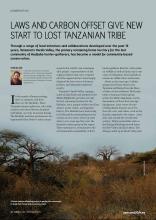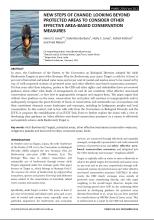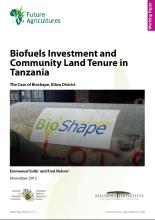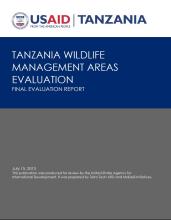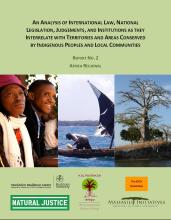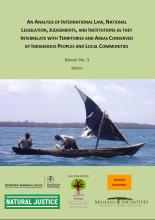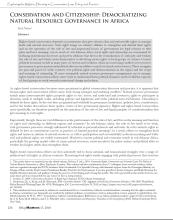Land Library
Welcome to the Land Portal Library. Explore our vast collection of open-access resources (over 74,000) including reports, journal articles, research papers, peer-reviewed publications, legal documents, videos and much more.
/ library resources
Showing items 1 through 9 of 22.Land liberalisation policies and programmes based on giving individual property rights implemented in the last decades have not produced the expected results in improving rural peasant and/or native livelihoods in Andean and African countries.
Through a range of local initiatives and collaborations developed over the past 15 years, Tanzania’s Yaeda Valley, the primary remaining home territory for the last community of Hadzabe hunter-gatherers, has become a model for community-based conservation.
In 2010, the Conference of the Parties to the Convention on Biological Diversity adopted the Aichi Biodiversity Targets as part of the Strategic Plan for Biodiversity 2011-2020.
One of the most wellknown biofuel investments was that of Bioshape, which acquired approximately 34,000 ha in Kilwa District for the cultivation of jatropha.
The increasing importance of the Wildlife Management Areas (WMAs) in Tanzania, where 17 WMAs are now functioning and 22 others are in various stages of development, begs the question of what successes have been achieved and what challenges remain to be addressed if this Community-Based Conservati
This study aims to examine current land access and youth livelihood opportunities in Southern Ethiopia. Access to agricultural land is a constitutional right for rural residents of Ethiopia.
This report provides a synthesis of three country level case studies (Namibia, Senegal, Kenya) carried out in African countries as a part of the overall legal review of Indigenous People’s and Community Conserved Territories and Areas (ICCAs).
Across the world, areas with high or important biodiversity are often located within Indigenous peoples’ and local communities’ conserved territories and areas (ICCAs).
Rights-based conservation depends on institutions that give citizens clear and enforceable rights to manage lands and natural resources.


